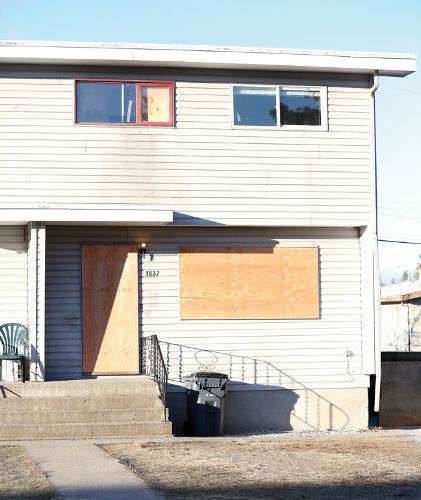The provincial government is responding with caution to a revived call from B.C.'s Children and Youth Representative Mary-Ellen Turpel-Lafond for "secure care" for youth struggling with drug addiction following the takedown of a drug house in Prince George two weeks ago.
The approach would require youth to enter detox, even if it's against their will.
In an email, a Ministry of Children and Family Development spokesman said it is "widely agreed" that voluntary services "are the most effective means of addressing addiction issues, which are often concurrent with mental health problems."
Turpel-Lafond's suggestion would "require the enactment of specialized legislation authorizing the involuntary detainment of youth," the spokesman said.
"This would require establishing specialized and expensive new facilities and programs. The potential costs and benefits of such an approach must be carefully considered."
It was an idea Turpel-Lafond first raised in a report she issued in May following the death of an aboriginal girl from a drug overdose in Vancouver's Downtown Eastside shortly after her 19th birthday.
Turpel-Lafond raised the possibility again this week, following the RCMP's takedown of an 1837 Spruce St. home on Nov. 19.
All of the 15 people arrested that night were adults, Prince George RCMP Cpl. Craig Douglass said this week, but a 14-year-old girl and a 15-year-old boy were apprehended during an RCMP raid on the same home in August.
Douglass said the two teens' guardians and MCFD were notified.
"We release them into somebody's care, somebody who's responsible, whether it be a parent in a state that could be responsible or whether it be MCFD if we can't find that," Douglass said.
"But we would always notify MCFD even if the kids didn't live there and the parents knew nothing about it and the parents were good parents and we took them to them."
He said there always remained the possibility that youth were passing through the home even if none were found on the night of the Nov. 19 raid, when police were called to a report of someone pointing a firearm inside the home.
They arrived to find thousands of used needles strewn about the home and described it as a flophouse for drug users.
In an interview, Turpel-Lafond told The Citizen the idea behind "secure care" is to put youth into detox "to the point where they can actually get their judgment back again."
"These kids are very disregulated... they may be with a parent that's an IV drug user, they may be staying up all night, sleeping during the day, taking drugs.
"Their capacity to make a decision is significantly impaired and you can't return them to that environment and say 'oh, at nine o'clock tomorrow morning during banker's hours, pop into my office and talk about your issues.'"
Turpel-Lafond said she has heard through her own sources that there is a population in Prince George of "high-risk" youth, who are drug users.
She said she is also working on behalf of "at least one youth" who hasn't been able to find a safe placement in Prince George.
"This is a complex topic," Turpel-Lafond said. "It isn't just a matter of are there 10 kids or 11 kids or was there two needles or 5,000 needles or 10,000 needles. This about the fact that there is a known problem in Prince George and how we will come to grips with that known problem."
In a separate response, MCFD also said a two-person RCMP high risk youth task force - consisting of a civilian member and an RCMP officer - has been in place for three years, that focuses on youth who have started to engage in criminal activity and high risk behaviours.



